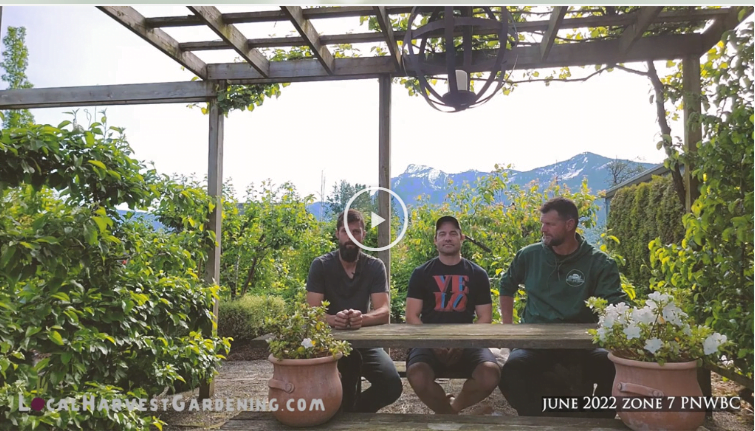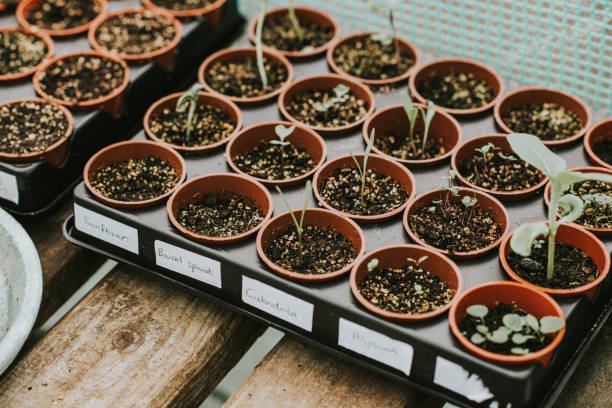Are you interested in cultivating a thriving organic garden but feeling overwhelmed by where to begin? The Local Harvest Organic Gardening Course might be the perfect solution!
This comprehensive program promises to equip you with the knowledge and skills needed to nurture a bountiful harvest of healthy, homegrown fruits and vegetables.
In this in-depth Local Harvest Organic Gardening Course review for 2024, we’ll dissect the course content, explore its benefits and drawbacks, and ultimately help you decide if it’s the right fit for your gardening aspirations.

Table of Contents
ToggleWhat is the Local Harvest Organic Gardening Course?
Developed by experts in organic gardening, the Local Harvest Organic Gardening Course is a self-paced online program designed for aspiring and seasoned green thumbs alike.
The course delves into the fundamentals of organic gardening practices, empowering you to cultivate a flourishing garden that’s not only productive but also environmentally responsible.
What Does the Course Cover?
The Local Harvest Organic Gardening Course boasts a comprehensive curriculum that covers a wide range of topics, including:
- Building healthy soil: Learn the importance of soil health and discover organic methods for creating a thriving foundation for your garden.
- Selecting the right plants: Explore suitable plant varieties for your climate and discover techniques for successful seed starting and transplanting.
- Organic pest and disease control: Gain valuable knowledge about natural pest control methods and organic solutions to keep your plants healthy.
- Companion planting: Understand the benefits of companion planting and how to create a harmonious and productive garden ecosystem.
- Season extension techniques: Learn how to extend your growing season and enjoy fresh produce throughout the year, even in colder climates.

How does Local Harvest Organic Gardening Course Work?
The Local Harvest Organic Gardening Course typically works as a structured program designed to educate participants on the principles and practices of organic gardening. Here’s an overview of how such a course might work:
- Curriculum Design: The course begins with a well-defined curriculum that covers various aspects of organic gardening, including soil health, composting, pest management, plant care, biodiversity, water conservation, and sustainable practices.
- Delivery Format: The course may be delivered through a combination of in-person classes, online modules, instructional videos, hands-on workshops, field trips to organic farms or gardens, guest lectures by experts, and interactive discussions.
- Duration: The duration of the course can vary depending on its intensity and depth. It may span several weeks to months, allowing participants enough time to grasp the concepts and apply them practically.
- Educational Materials: Participants are provided with educational materials such as textbooks, manuals, online resources, and gardening tools or kits necessary for practical activities.
- Theory and Practice: The course typically starts with theoretical sessions where participants learn about the principles and theories behind organic gardening. This includes understanding the importance of organic practices, soil biology, plant nutrition, pest and disease management, and ecosystem health.
- Hands-On Experience: To reinforce learning, participants engage in hands-on activities such as soil testing, composting, planting and caring for organic crops, identifying beneficial and harmful insects, designing garden layouts, and implementing sustainable irrigation techniques.
- Assessments and Feedback: Throughout the course, there may be assessments such as quizzes, assignments, and practical demonstrations to evaluate participants’ understanding and progress. Feedback from instructors and peers helps participants improve their skills and knowledge.
- Community Engagement: Many organic gardening courses encourage community engagement by involving participants in local gardening projects, community gardens, or volunteering opportunities. This fosters a sense of community, collaboration, and shared learning among participants.
- Certification or Recognition: Upon successful completion of the course and assessments, participants may receive a certificate, recognition, or accreditation, acknowledging their proficiency in organic gardening practices.
- Continued Support: Some courses offer continued support or alumni networks where participants can access additional resources, guidance, and networking opportunities even after completing the formal course.
What can be learned from the Local Harvest Organic Gardening Course?
Here’s a step-by-step breakdown of what the “Learn from Local Harvest Organic Gardening Course” entails:
✅ Introduction to Organic Gardening: The course begins with an introduction to organic gardening principles and practices. Participants learn about the importance of avoiding synthetic chemicals and promoting natural methods for cultivating plants.
✅ Understanding Soil Health: The course covers the fundamentals of soil health and its significance in organic gardening. Topics include soil composition, nutrient balance, pH levels, and techniques for improving soil fertility organically.
✅ Composting Techniques: Participants learn about different composting methods to recycle organic waste and create nutrient-rich compost for their gardens. This includes compost bin setups, composting materials, and managing compost piles effectively.
✅ Natural Pest Management: The course educates participants on how to manage pests and diseases in their gardens without relying on synthetic pesticides. It covers techniques such as companion planting, biological controls, and using organic pest deterrents.
✅ Crop Rotation and Plant Diversity: Participants learn the importance of crop rotation in maintaining soil health and preventing pest and disease buildup. The course also emphasizes the benefits of planting a diverse range of crops to support ecosystem balance and resilience.
✅ Water Conservation and Management: The course addresses water conservation strategies for organic gardens, including efficient irrigation methods, rainwater harvesting, and mulching techniques to retain soil moisture.
✅ Local Adaptation and Seasonal Gardening: Participants learn how to adapt organic gardening practices to their local climate and environment. This includes selecting regionally appropriate plant varieties, understanding local growing seasons, and optimizing planting schedules.
✅ Harvesting and Food Preservation: The course covers proper harvesting techniques for fruits, vegetables, and herbs grown organically. Participants also learn about food preservation methods such as canning, drying, and freezing to extend the shelf life of their harvests.
✅ Community Engagement and Resources: The course may encourage community engagement by connecting participants with local gardening groups, farmers’ markets, and resources for obtaining organic seeds, plants, and gardening supplies.
✅ Final Project or Assessment: Depending on the course structure, participants may be required to complete a final project or assessment to demonstrate their understanding of organic gardening concepts and practical skills acquired during the course.

Benefits of Taking the Local Harvest Organic Gardening Course
- Convenience and Flexibility: Enjoy the ease of learning at your own pace with the self-paced online format.
- In-depth Knowledge: Gain valuable insights from gardening experts and acquire a strong foundation in organic gardening principles.
- Sustainable Practices: Learn eco-friendly methods for cultivating a healthy garden that benefits both your harvest and the environment.
- Community Support: Connect with a community of fellow gardening enthusiasts for support, motivation, and shared experiences (depending on the course offering).
- Cost-effective: Compared to hiring a gardening consultant, the course offers a budget-friendly way to gain valuable knowledge.
Refund Policy:
“Enroll in our Local Harvest Organic Gardening Course risk-free with our 60-day money-back guarantee! If you’re not completely satisfied with the course content and your learning experience within 60 days of enrollment, we’ll refund your investment, no questions asked. Join us today and start your journey towards successful organic gardening!”
Conclusion:
The Local Harvest Organic Gardening Course receives a resounding endorsement as a comprehensive and enriching learning experience.
With its emphasis on sustainable practices, soil health, biodiversity, and organic pest management, the course equips participants with valuable knowledge and practical skills for cultivating thriving gardens.
The hands-on approach, combined with theoretical insights and community engagement, makes this course highly effective in empowering individuals to embrace organic gardening principles and contribute positively to environmental conservation.
Affiliate Disclosure: This product review contains links that may earn us a small commission if you choose to purchase the recommended product, with no extra cost to you. This commission contributes to supporting our research and editorial team. Rest assured that we only recommend products of high quality.
Disclaimer: This article is for informational purposes only and does not constitute financial or investment advice. It is advisable to conduct thorough research and exercise caution before making any financial decisions.
